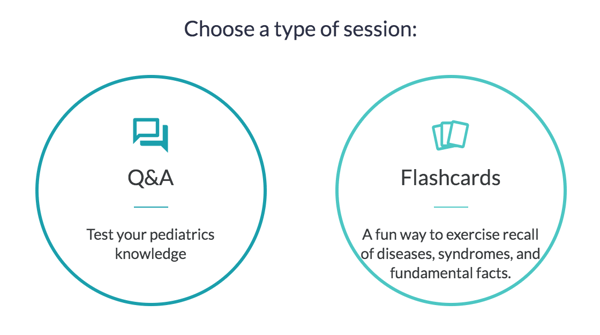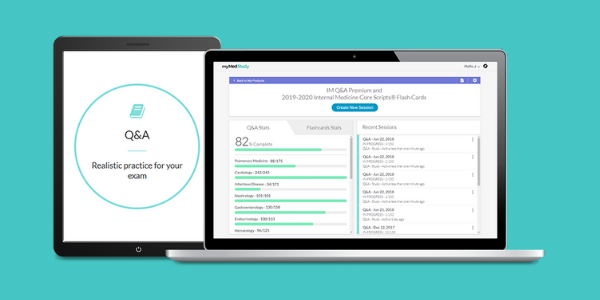How to Improve Memory Recall With This One Technique
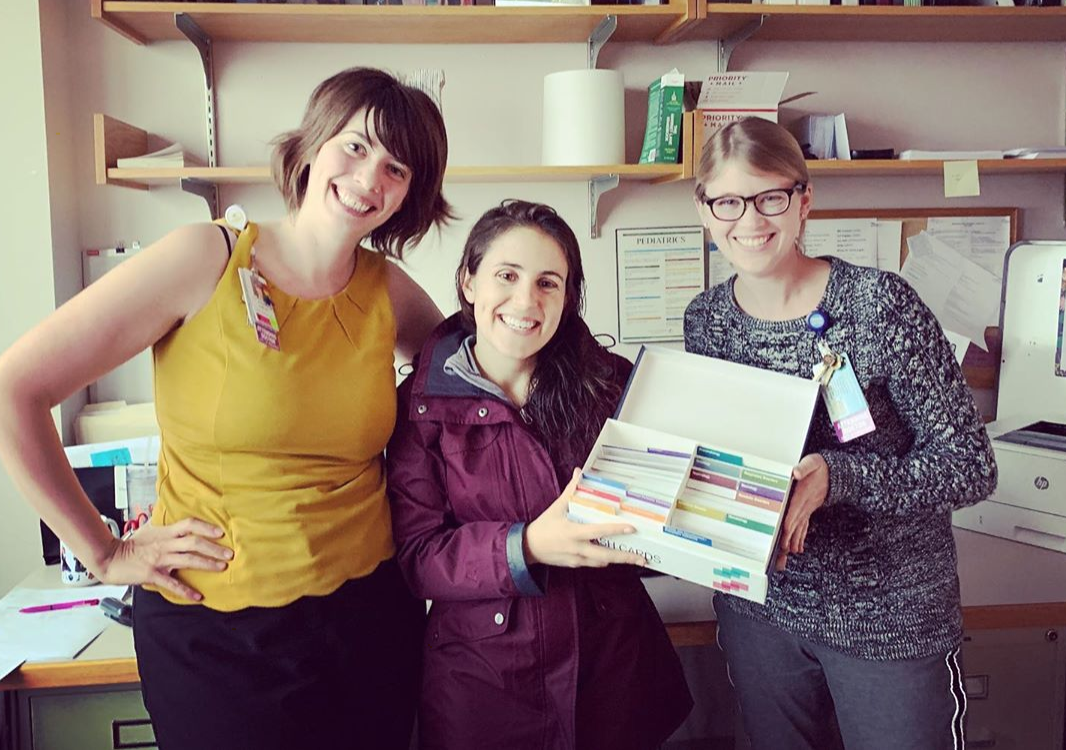
Retrieval practice is a powerful technique to move information from short-term to long-term memory. Most people are unaware of just how effective this practice can be. Research shows that learners who use this technique perform up to 50% better than those who only review or reread.
How to Maximize the Power of Retrieval Practice
Want to put retrieval practice to work for your exam? You might know it more commonly as self-testing. Here's 5 tips to put self-testing to work during your next study session.
Start Your Study Session With a Pretest to Improve Memory Recall
Taking a pretest will get your mind ready for learning and help you determine what you know. The act of guessing engages the mind in a way that just "being fed" the answers does not. Here are some ways that you can take a pretest at the beginning of your study sesh:
- Go through the Preview | Review questions at the beginning of each section in your MedStudy Internal Medicine Core or Pediatrics Core.
- Use flashcards you've previously generated yourself while studying
- Start a new session in the IM Core Scripts or Peds Flashcards
- Quiz yourself using the Board-Style Q&A Premium for IM or Peds
Make Sure You're Giving Yourself Immediate Feedback
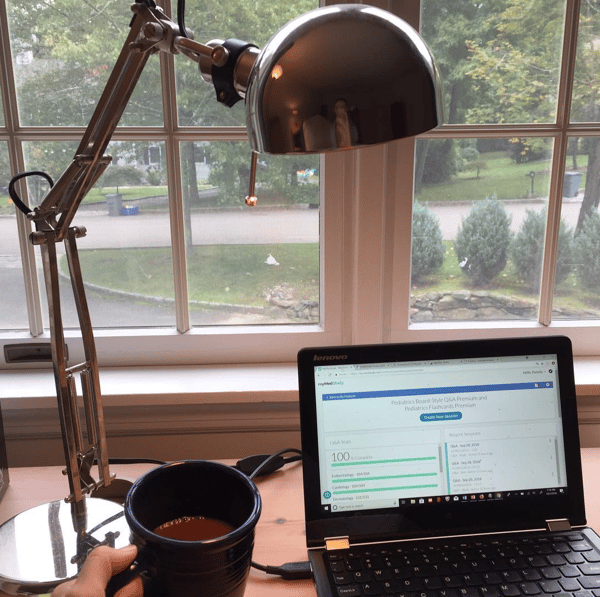 @mostlyprimalpammy shows off her 100%'d Q&A bank on Instagram
@mostlyprimalpammy shows off her 100%'d Q&A bank on Instagram
Be sure to check what you got right, and what you got wrong so you have an immediate opportunity to “self-correct.” Giving yourself this immediate feedback is critical to remembering the correct answer next time.
Feedback is most effective after you complete an entire quizzing session. An example of this is if you use the "test mode" in our Board-Style Q&As, you are able to see your report card of correctly and incorrectly answered questions only after you have completed an entire session. Then, go back through the report card and look over your answers.
"The question bank gave me an overview as well as point out the gaps in my knowledge for that specific topic." —George Rodriguez, MD
"The practice questions helped identified areas of deficiencies and lead to approach to focus on those areas." —Adedayo Adetola, MD
Test Repeatedly After You Study a Topic
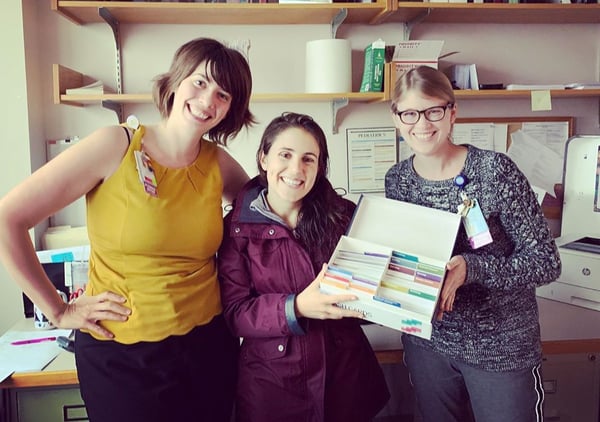 @mghfcpeds residents excited to dive into MedStudy Flashcards
@mghfcpeds residents excited to dive into MedStudy Flashcards
This works best if you space your testing in lengthening intervals, such as 1–2 days after studying, then a week later, 2 months, and 4 months. Retrieval at the point of forgetting has a greater impact on long-term retention than retrieval when memory is strong.
"The cards help keep me engaged as I read the material. They help break up the monotony of study and improve recall."—Winsome Whittaker, MD
Don't “Set Aside” Answers You Got Correct
 MedStudy's Flashcards allow you to separate cards you know well from ones you want to look at again
MedStudy's Flashcards allow you to separate cards you know well from ones you want to look at again
It seems logical to focus only on your weak spots, but you also need to return to self-testing on topics you know well. This is especially true if you get an answer right but with low confidence. And be sure to return to topics that you studied recently, because the strength of short-term memory can easily be mistaken for fluency.
When you go through MedStudy's IM Core Scripts or Peds Flashcards you can select "Know it" or "Not sure" while self-testing, then when you are done with your session you can go over not only why an incorrect answer is wrong, but also, why a correct answer is right!
Testing From a Computer Is an Ideal Environment
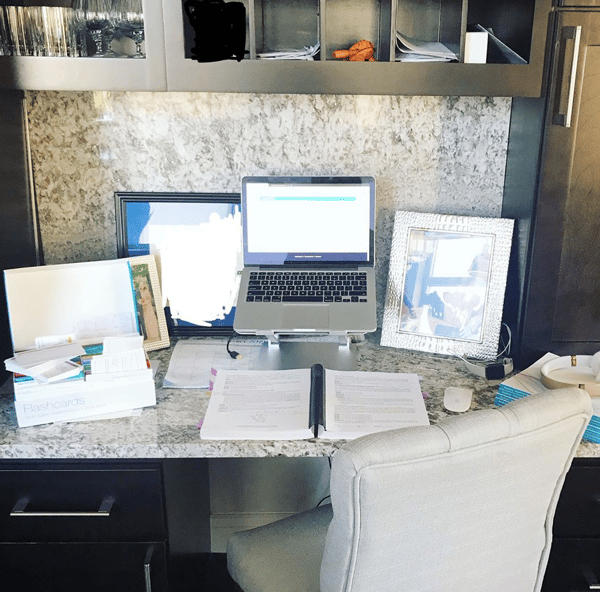 @kid.doctor's study space from Instagram, including her Q&As on her laptop
@kid.doctor's study space from Instagram, including her Q&As on her laptop
Computer testing is effective for everybody because it has the potential to provide such comprehensive feedback for self-correction. Plus, your exam will take place on a computer, so you can prepare by getting comfortable on the screen.
Put these tips to work during your next study session! Start self-testing with the free trial of Q&A Premium now.


